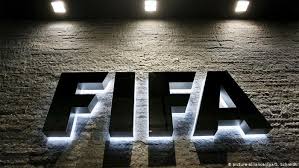June 6 – Amnesty International has demanded that FIFA assess human rights risks before awarding World Cups, with the world governing body set to award the 2034 tournament to Saudi Arabia later this year.
Amnesty wants FIFA to provide binding safeguards in relation to human rights from 2030 and 2034 World Cup bidders but believes that with single bidders for each tournament, those safeguards will not be secured.
Steve Cockburn, Amnesty International’s Head of Labour Rights and Sports, said: “The human rights issues associated with the joint 2030 World Cup bid are significant and must be addressed but the risks associated with the 2034 FIFA World Cup bid by Saudi Arabia – including those faced by workers, fans and journalists – are of an entirely different magnitude and severity.
“History shows that the World Cup can be a source of dignity or exploitation, inclusion or discrimination, freedom or repression, making FIFA’s award of the hosting rights for the 2030 and 2034 tournaments among the most consequential decisions ever taken by a sporting organisation.”
Human rights concerns were never much part of major sporting events until FIFA awarded the World Cup to Qatar in 2010. In the protracted build-up to the tournament, Qatar was heavily criticised for its treatment of migrant workers who helped build the infrastructure for the tournament.
In the report ‘Playing a Dangerous Game? Human Rights Risks Linked to the 2030 and 2034 FIFA World Cups’, Amnesty points out that accident rates at construction projects in Spain and Portugal are above EU levels and highlights the racism in Spanish stadiums. The human rights organisation was blunter about the risks related to Saudi Arabia’s bid for the 2034 World Cup.
It wrote: “Saudi Arabia has an appalling human rights record and its bid carries a broad range of very serious risks. The Kingdom has spent billions in recent years on an image rehabilitation campaign, heavily reliant on investment in sports including football to distract from its abysmal track record of abuses. A draft penal code looks set to further entrench many human rights violations in law.”
Amnesty also highlighted the kafala system that applies in Saudi Arabia and the Neom project in the west of the country.
The report recommends that “FIFA conducts genuinely independent human rights risk assessments of each bid, and secures binding commitments from host nations to prevent human rights violations, with rigorous systems to monitor and enforce their implementation, including grievance mechanisms and access to effective redress.”
Contact the writer of this story at moc.l1751504882labto1751504882ofdlr1751504882owedi1751504882sni@i1751504882tnuk.1751504882ardni1751504882mas1751504882

